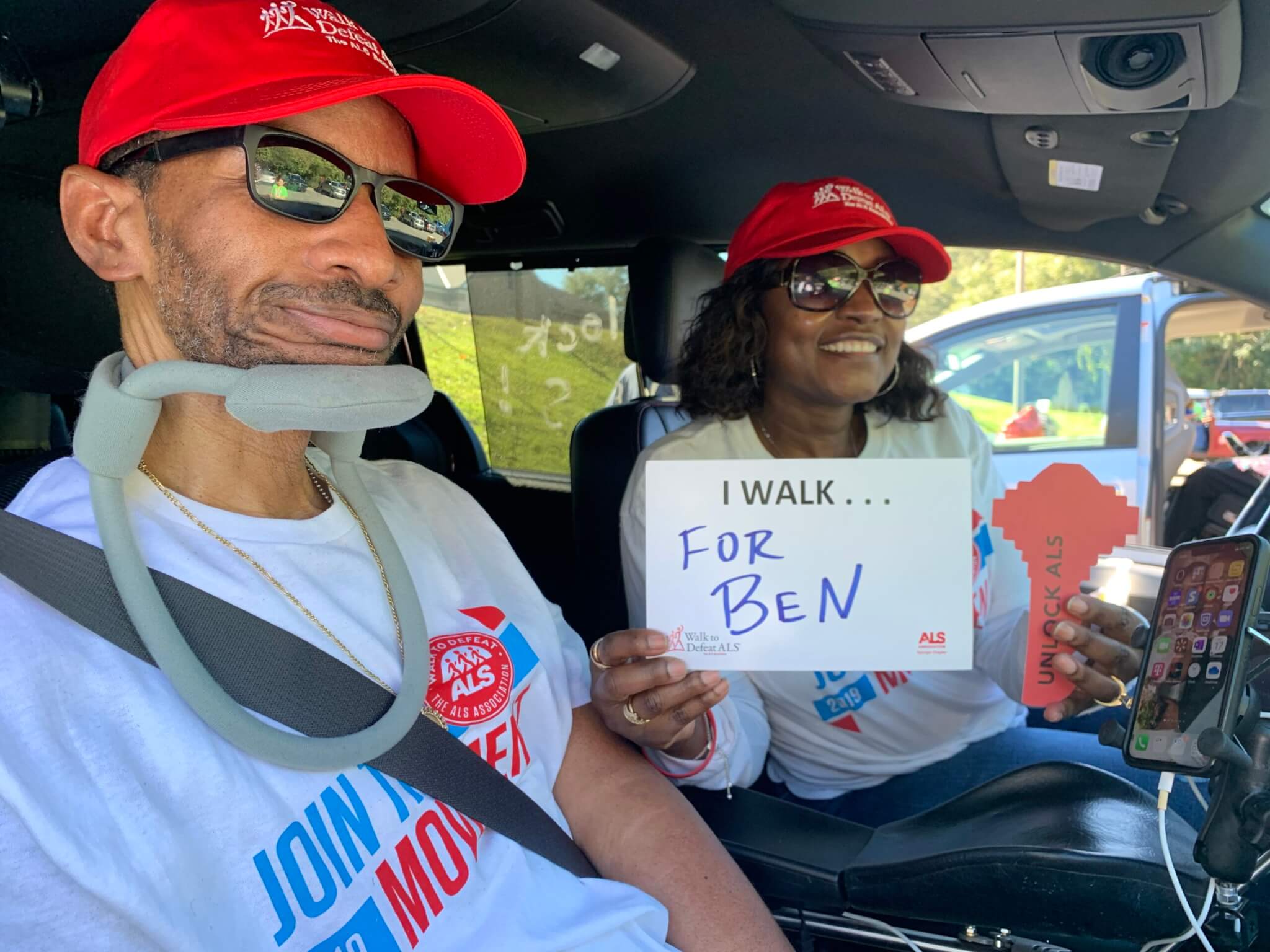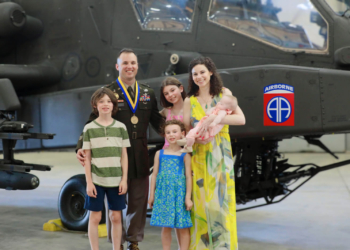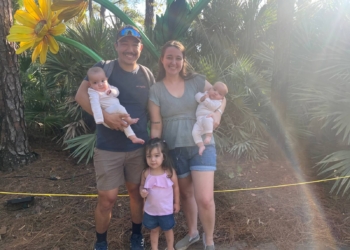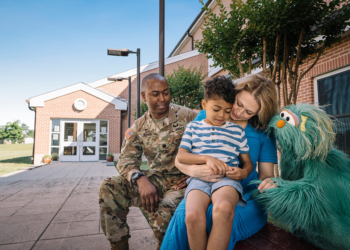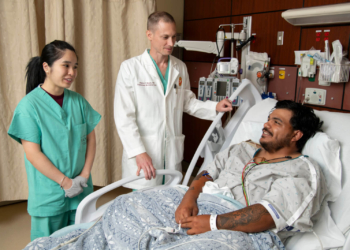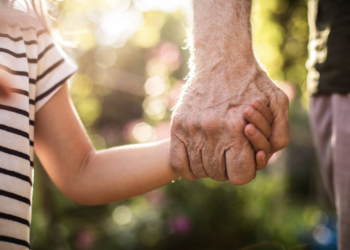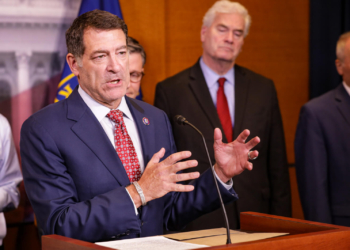Army Sgt. Nathaniel Heath-Price had just returned from his second tour in Afghanistan when he was struck while driving his motorcycle and left to die.
“When he [Nathaniel] was first injured, he was intubated, and he had a breathing tube, and he had a feeding tube,” said Stacey Hawley, Heath-Price’s mother and one of 15 Dole Caregiver Fellows for 2024.
For the past six years, Hawley has cared for Heath-Price, an injured veteran whose traumatic brain injury caused partial paralysis. She is among the more than 14 million Americans who provide care for “wounded, ill, or injured military service members or veterans,” according to a new RAND report commissioned by the Elizabeth Dole Foundation.
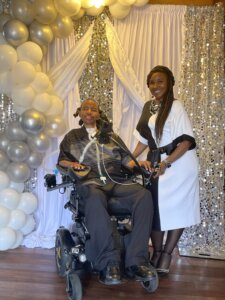
Dole Caregiver Fellows
The Elizabeth Dole Foundation strengthens and empowers military and veteran caregivers in the United States. Its fellows receive training to serve as community builders and voices of support in their home states. Honorees also advocate locally and nationally for caregivers, sharing their experiences with elected officials.
“Every year, we are privileged to welcome a new class of Fellows who bring a wealth of insights, perspectives, and experiences,” Steve Schwab, CEO of the Elizabeth Dole Foundation, said in a press release. “The diversity of this year’s class enriches our mission as we continue to support the hidden heroes caring for those who serve. These Fellows will strengthen our national network of caregivers from all backgrounds and contribute to solving the systemic issues that continue to affect the lives of caregivers, veterans, and their families.”
Michele Hopkins, a Georgia resident, is another 2024 Dole Caregiver Fellow. She provides care to Benjamin Hopkins, her husband of six years and an Army veteran. Benjamin is a quadriplegic who has amyotrophic lateral sclerosis (ALS) and other health conditions that require hands-on care. In 2017, Benjamin was diagnosed with PTSD, then sleep apnea the following year.
“What has changed that has me taking care of him … throughout the day and night, is he was diagnosed with ALS in 2019, which is a service-connected illness,” Michele said. “He’s been pretty much totally dependent on me to do everything for him since the latter part of 2019.”
Michele retired in 2022. She spent her career working in health-care-related roles, including 25 years in the Air Force Reserve. The full-time caregiver found out about the Elizabeth Dole Foundation through a social worker at VA Dublin Health Care in Duluth, Georgia.
She felt inspired to apply for the 2024 Class of Dole Caregiver Fellows.
“I really feel that it’s really important for someone, or anyone who can, to be a voice for those who cannot be a voice for themselves,” she explained.
The busy caregiver has gained an introduction to other programs and caregiver peers.
“My family has just grown significantly because of the fellows that I’ve met as a result of being selected as a caregiver fellow,” Michele noted.
‘Happy to be that voice’
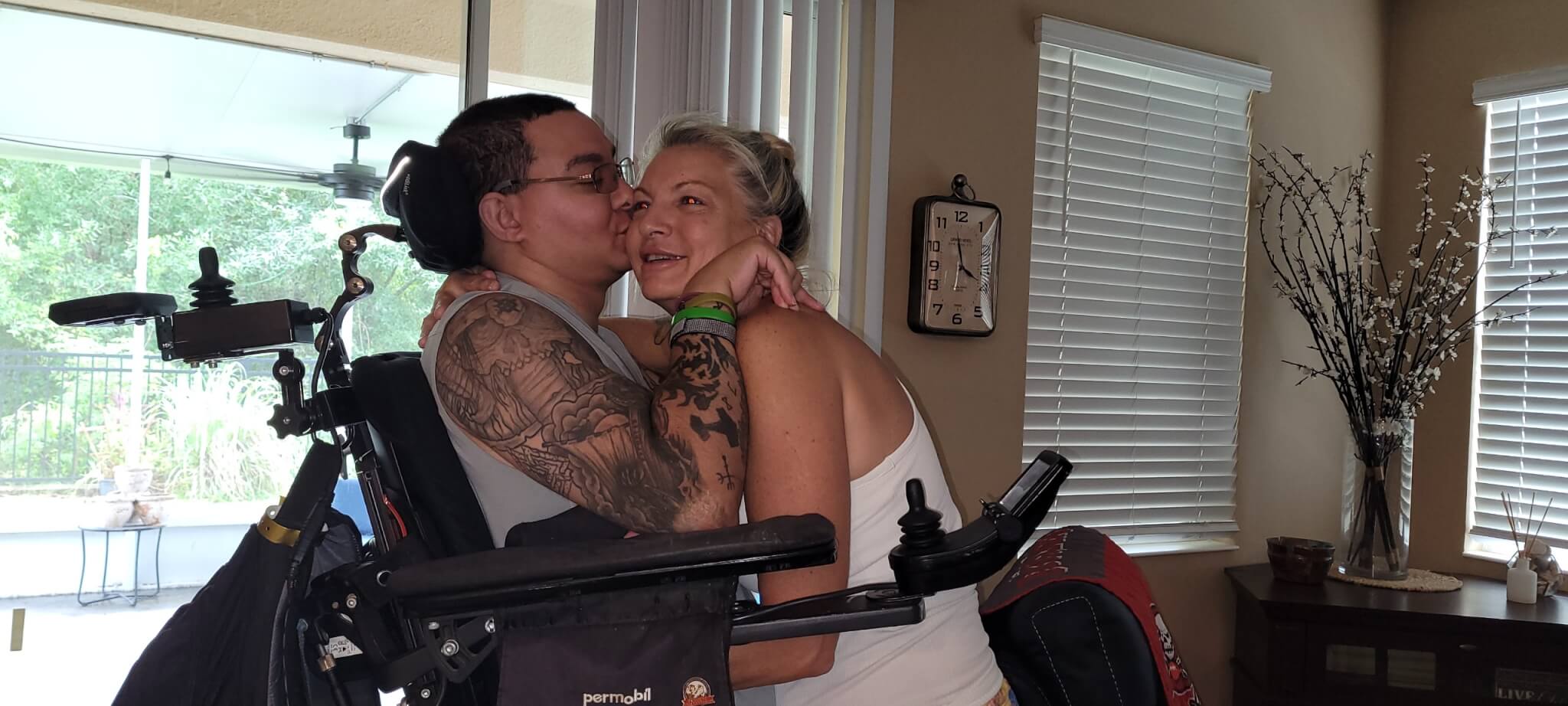
Heath-Price’s health has progressed positively, but it has taken time and effort. After the crash first occurred, Hawley, a Floridian, made work arrangements and traveled to North Carolina to support her only child.
“Three days after his accident, I had a heart attack,” Hawley said.
But she got back on her feet medically and recalled learning how to perform medical tasks for Heath-Price through hospital stays where her son could receive treatment.
The military mother, caregiver and paralegal also endured a long fight to obtain benefits for her son. During a stressful peak, she found herself unable to balance a full-time job and caregiving duties. Hawley depleted her retirement.
“We got to the point where we were living on his very meager income from the military, and I ended up selling my plasma so that we would have money to eat,” Hawley said.
She became acquainted with the Elizabeth Dole Foundation when someone told her about the caregiver resource.
“They gave me some respite hours,” Hawley said.
She was attracted to the idea of participating in advocacy work as a Dole Caregiver Fellow. She applied and felt privileged that she was selected to join this year’s class.
“Caregivers need a voice. I’m happy to be that voice,” Hawley said.


